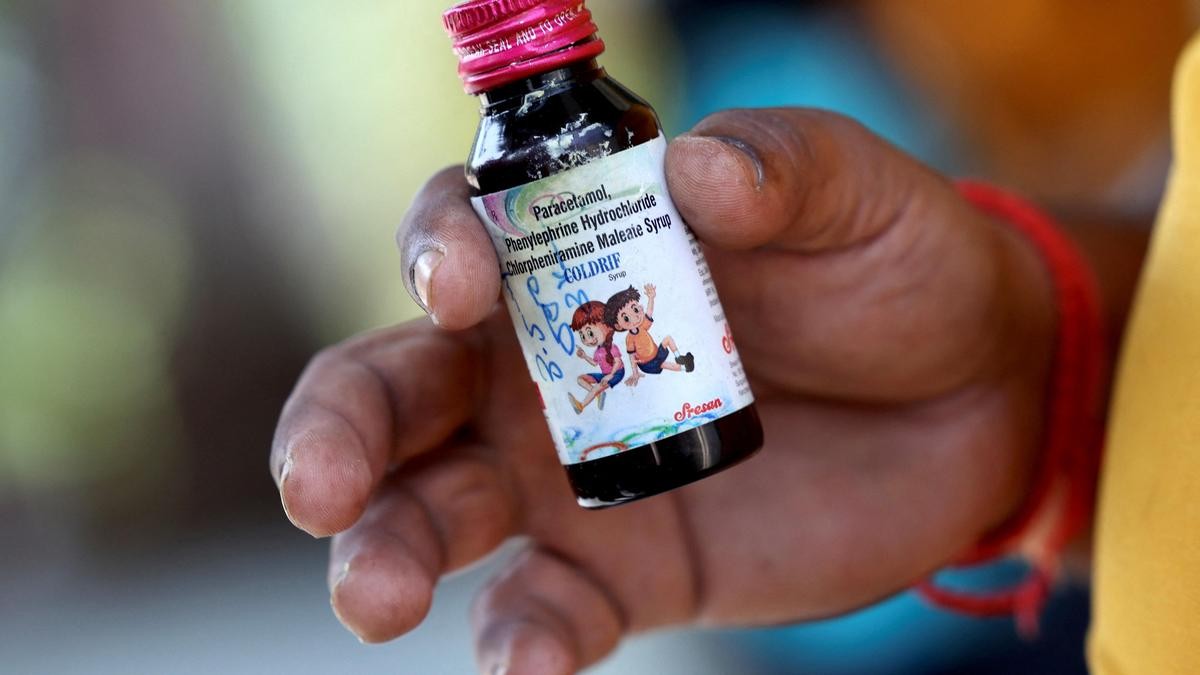Description

Source: THE HINDU
Disclaimer: Copyright infringement not intended.
Context:
- Researchers have developed a new blood test to detect Alzheimer’s disease that helps diagnose the disease even at the early stage of mild cognitive impairment.
Details:
- Scientists at Lund University in Sweden have shown that PrecivityAD2, a new blood test, is about 90% accurate in identifying AD in people experiencing cognitive symptoms.
- The paper ‘Blood Biomarkers to Detect Alzheimer Disease in Primary Care and Secondary Care’ by Sebastian Palmqvist et al was published in the July 28 edition of peer-reviewed journal JAMA.
- According to statistics, one in five women and one in 10 men develop dementia due to AD (Alzheimer’s disease).
- Individuals with cognitive symptoms are first seen in primary care, with a minority being referred to secondary care.
What does the test do?
PrecivityAD2 is a test that helps find out if someone has Alzheimer's disease by looking at specific proteins in their blood.
Measuring Protein Ratios: The test checks the levels of certain proteins in a blood sample.
- Plasma Phosphorylated-Tau217 (p-tau217): This protein is linked to the buildup of neurofibrillary tangles, which are a key sign of Alzheimer’s disease.
- Amyloid-Beta (AB42 and AB40): These proteins form plaques in the brain, which are also associated with Alzheimer’s.
About Alzheimer’s Disease
Alzheimer’s Disease is a serious brain disorder that mainly affects older people. It leads to memory loss and trouble thinking clearly. Traditionally, diagnosing Alzheimer’s can be expensive and complicated because it often requires special scans like PET scans.
Exciting New Development
- Researchers at Lund University in Sweden have created a new blood test called PrecivityAD2.
- This test is about 90% accurate in spotting Alzheimer’s disease, especially in the early stages when people first show signs of memory problems.
Key Findings
- The study, published in the journal JAMA, showed that the PrecivityAD2 test works well for detecting Alzheimer’s. This could make it easier for doctors to diagnose the disease early.
Why This Blood Test Is Important
- Easier to Use: Unlike PET scans, this blood test only needs a simple blood sample. It’s less invasive and easier to administer.
- Cheaper: The blood test is more affordable than traditional methods, making it available to more people.
- Early Detection: Finding Alzheimer’s early can help start treatment sooner, which might slow down the disease.
Expert Views
- Howard Fillit, from the Alzheimer’s Drug Discovery Foundation, says this new test could change how we diagnose Alzheimer’s.
- He believes it might soon replace PET scans and become the first choice for doctors.
Impact on India
- India has a growing elderly population and may face a rise in Alzheimer’s cases.
- This new blood test could be very helpful here, offering a cost-effective and easy way to diagnose the disease.
- However, it will need preparation and training for doctors to use it effectively.
Benefits of Early Detection
- Earlier Treatment: Diagnosing the disease sooner means patients might get treatments that could slow down the disease or manage symptoms better.
- Better Planning: Early diagnosis helps in planning for future care, making sure patients and their families get the support they need.
- Clinical Trials: Early detection can also allow patients to join clinical trials for new and promising treatments.
Conclusion
- The PrecivityAD2 blood test is a big step forward in diagnosing Alzheimer’s Disease. It’s accurate, affordable, and simple, which could lead to better and earlier treatment for patients worldwide, including in India.
MUST READ ARTICLES:
Alzheimer's disease and natural polyphenol
Donanemab: A New Alzheimer's Drug
alzheimer's disease spreads from human to human
Fibronectin| Alzheimer's disease| Genetic Engineering
Diseases and Its Types: Comprehensive Overview for UPSC
International Classification of Diseases
NEGLECTED TROPICAL DISEASES (NTDs)
Source:
https://epaper.thehindu.com/ccidist-ws/th/th_international/issues/93699/OPS/G5DD5BJ21.1.png?cropFromPage=true
|
PRACTICE QUESTION
Q.Discuss the significance of the newly developed blood test, PrecivityAD2, in the early detection of Alzheimer’s disease. Evaluate its potential impact on diagnosis, treatment, and healthcare in India, considering the challenges associated with traditional diagnostic methods.
|












